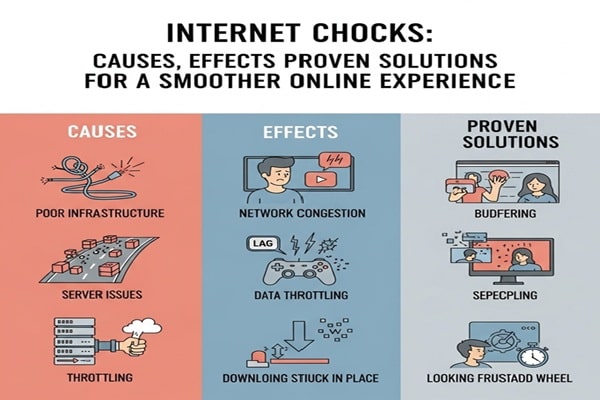Ross Stevens Net Worth Revealed: From Wall Street to $200K Olympic Donations
Share your love
Ross Stevens' net worth has drawn attention after he pledged $100 million to help U.S. Olympic athletes with post-retirement plans worth up to $200,000 per athlete. His financial influence goes beyond Olympic generosity. His hedge fund, Stone Ridge, made waves when it reported over $1 billion in trading profits last year.
We've kept an eye on Stevens' financial success story. While his net worth figures on Forbes may differ, his mark on finance and philanthropy stands clear. His charitable work stretches beyond sports.
He gave $100 million to the University of Pennsylvania, which he later pulled back due to antisemitism concerns. A legal battle now looms as a former colleague claims Stevens didn't honor bonus agreements that could be worth $50 million each year.
Let's get into how Stevens built his wealth and take a closer look at his major money moves. We'll also explore the debates around his business choices and charitable donations in this piece.
Ross Stevens Net Worth: What We Know So Far
Ross Stevens' exact net worth remains surprisingly hard to determine. Public estimates vary dramatically despite his prominence in financial circles and headline-making donations. Stevens' concrete financial information stays elusive.
Conflicting estimates from public sources
Stone Ridge Asset Management's founder's wealth estimates span an extraordinarily wide range. This creates a puzzling picture of his financial status. One source credits Stevens with "a laudable net worth of approximately USD 5.00 million".
Another publication suggests "around USD 1.00 million". Some estimates place his fortune at a surprisingly modest "USD 250.00 thousand". Yet another source states "The Ross Stevens net worth is USD 1.41 million".
These wildly divergent figures question the reliability of public wealth estimates for private financial figures. The highest and lowest published estimates show a 20-fold variance—an unusual gap even in wealth estimation's murky world.
Why his net worth is hard to pin down
Multiple factors make it difficult to assess Stevens' wealth accurately. His role as CEO of a private investment firm means he doesn't need to disclose personal financial information, unlike public company executives.
His wealth likely sits in complex investment vehicles and private holdings that outside observers struggle to value. Stone Ridge Asset Management's net worth stands at "an impressive USD 20.00 million" as of 2024.
This represents the company's value rather than Stevens' personal wealth. The firm grew steadily from "USD 16.00 million" in 2023 and "USD 14.50 Million" in 2022.
Stevens' financial capacity becomes clearer through his philanthropic pledges. He committed $100 million to the University of Pennsylvania and another $100 million for Olympic athletes. This suggests access to substantial resources beyond lower estimates.
Court filings in an ongoing legal dispute reveal Stevens allegedly promised a former colleague bonuses "as high as USD 50.00 million a year". This further points to significant financial means.
Ross Stevens net worth Forbes mentions
Ross Stevens lacks a dedicated Forbes wealth profile unlike many similar finance industry leaders. This absence stands out given Forbes' reputation on its coverage of wealthy individuals.
Name similarities in Forbes' database might cause confusion. Stephen Ross (different from Ross Stevens) appears on Forbes with detailed wealth history and personal information. This real estate magnate's clear Forbes profile contrasts with Stevens' absence.
The missing Forbes coverage could mean several things. Stevens' wealth might not meet Forbes' reporting thresholds. His financial holdings might prove too complex to value accurately. He might prefer keeping his personal finances private. Notwithstanding that, his nine-figure donations suggest substantial wealth that deserves closer attention from financial publications.
How Ross Stevens Built His Wealth
Ross Stevens built his wealth through his entrepreneurial ventures in asset management and cryptocurrency. He knows how to spot emerging financial trends and create innovative investment vehicles, making him a major player in alternative investments and financial technology.
Founding of Stone Ridge Asset Management
Stevens launched Stone Ridge Asset Management in 2012, which became the life-blood of his financial empire. He built the firm into a substantial alternative investment company as its Founder and CEO. The company expanded beyond traditional assets and grew by a lot. Stone Ridge reported "well over $1 billion in reinsurance trading profits in 2023".
This remarkable performance shows how profitable the alternative investment strategies that Stevens pioneered were, which added to his personal wealth.
Early career at Goldman Sachs and Wharton background
Stevens started his career at Goldman Sachs after completing extensive academic training. He earned a BSE in Finance from the University of Pennsylvania's Wharton School in 1991.
He then got a PhD in Finance and Statistics from the University of Chicago's Booth School. His elite financial education and experience at one of Wall Street's top institutions gave him the knowledge and connections to start his own ventures.
Involvement in NYDIG and crypto investments
Stevens founded the New York Digital Investment Group (NYDIG) in 2017, which turned out to be crucial to his wealth creation. He led NYDIG as Executive Chairman through major growth phases, reaching a "$7 billion valuation in a 2021 fundraising".
Under his watch, NYDIG secured "a USD 200.00 million round from a group of institutional investors" led by Stone Ridge Holdings Group, with Morgan Stanley, New York Life, MassMutual, and Soros Fund Management joining in.
Stevens stuck to a strict investment philosophy at NYDIG that focused on Bitcoin and avoided other cryptocurrencies. He gave clear advice: "Do not invest in crypto other than bitcoin or in decentralized finance (DeFi) not based on the Bitcoin blockchain".
This Bitcoin-only strategy proved smart when NYDIG "consistently passed on opportunities to partner with the likes of FTX, as well as Three Arrows, BlockFi, Celsius and others" that failed later.
Alternative asset strategies and fintech ventures
Stevens grew his wealth through innovative financial technology ventures. He created Wharton's Stevens Center for Innovation in Finance, showing his dedication to combining finance and technology. The center reflects his goal to "continue to innovate at the exciting and ever changing intersection of finance and technology".
Stone Ridge developed expertise in reinsurance markets under Stevens' leadership. The firm has the "highest forward conviction for reinsurance", showing Stevens' knack for finding profitable niches in complex financial markets.
Stevens announced NYDIG's Lightning accelerator project for Bitcoin development in 2022. The program has:
- Eight-week cohorts with 8-12 teams per session
- World-class mentors with office hours
- Significant seed capital for participating teams
Stevens stayed ahead of financial trends throughout his career and created substantial personal wealth by owning and leading these innovative financial ventures.
The Legal Dispute That Shook Stone Ridge
A legal battle has cast a shadow over Ross Stevens' net worth and business practices. Erick Goralski, a co-founder and former head of client strategies at Stone Ridge Asset Management, filed a lawsuit against Stevens and his firm in August 2024. The lawsuit alleges millions in unpaid bonuses while the company reported over $1 billion in trading profits recently.
The bonus payment controversy with Erick Goralski
Goralski's financial background spans positions at Deutsche Bank and Lehman Brothers. Stevens promised him substantial annual bonuses over six years after his 2018 departure from Stone Ridge.
The payment structure would start at $4.4 million in 2019, grow to $9 million in 2020, and reach $10 million in 2021. Court filings show some promised bonuses could reach as high as $50 million each year.
Goralski received only $700,000 in 2019 before the payments stopped completely. Stone Ridge's public disclosure of billion-dollar profits during this period has drawn more attention to Stevens' financial commitments.
Allegations of broken agreements
The lawsuit centers on a 2018 post-separation agreement that Goralski signed while leaving Stone Ridge. The document guaranteed "substantial compensation" over six years if he left "quietly". The agreement named Goralski as a "special advisor to the CEO"—a role that seemed largely ceremonial.
Stevens barely responded to Goralski's attempts to discuss the matter. His only reply to one request was a brief message: "I'm sorry you are disappointed".
Internal tensions and company culture
The relationship between these executives deteriorated because of a "longstanding dispute" about the "treatment of equity for co-founders and key early hires". Someone close to their relationship described Stevens' leadership style simply: "It's Ross's way or it's the highway".
Goralski's LinkedIn posts sparked legal action. He wrote about organizational tensions at Stone Ridge, describing "an energy building that wasn't entirely positive" and "constant tension between the chosen values like 'focus'… and the intoxication of launching the next big new idea".
Impact on Stevens' public image
The timing of this legal dispute proves particularly sensitive for Stevens. It follows his high-profile withdrawal of a $100 million donation from the University of Pennsylvania over antisemitism concerns.
Stone Ridge lawyers escalated the situation by sending Goralski a cease-and-desist letter on July 26, 2024, about his LinkedIn posts. They threatened to "claw back money he earned in the two years before he stood down from the firm unless he stopped posting on social media immediately". Goralski's lawsuit challenges this as an "unenforceable penalty".
This ongoing litigation adds another layer to evaluations of Ross Stevens' net worth. It raises questions about financial obligations and management practices at his firm.
The $100M Olympic Donation: A Game-Changer
Ross Stevens showed his financial expertise beyond wealth accumulation when he pledged $100 million to the United States Olympic & Paralympic Committee (USOPC) in March 2025.
This record-breaking gift became the largest in USOPC's history and created the Stevens Financial Security Award—a program that provides long-term financial support to America's Olympic athletes.
Overview of the Stevens Financial Security Award
The Stevens Financial Security Award brings a fresh perspective to athlete support. The program will give eligible Team USA athletes $200,000 in benefits for each Olympics or Paralympics they attend, starting with the 2026 Milano Cortina Winter Games through at least 2032.
The program's permanent status looks promising, though USOPC estimates suggest it would need about $250 million for perpetual funding.
Eligibility and payout structure for athletes
The award features two innovative components:
- $100,000 to live: Athletes can access these funds 20 years after their qualifying Games or at age 45, whichever comes later. They can use the money, spread over four years, for any purpose.
- $100,000 to protect: This life insurance benefit goes to the athlete's family or chosen beneficiaries after their death.
The program rewards multiple appearances—athletes receive these benefits for each Games they compete in. A three-time Olympian would then receive $600,000 in total benefits. Athletes earning over $1 million yearly don't qualify for the program.
Why Stevens chose to support Team USA
"I do not believe that financial insecurity should stop our nation's elite athletes from breaking through to new frontiers of excellence," Stevens explained. His decision came from seeing that 57% of U.S. athletes earn $50,000 or less yearly.
Stevens considers the Olympics "the ultimate symbol of human excellence". His company, Stone Ridge, has committed to match its employees' contributions to the program.
Reactions from the USOPC and athletes
USOPC Chair Gene Sykes called the donation "the biggest thing that anyone's ever done" to address athletes' retirement needs. The timing couldn't be better—a 2024 report revealed many U.S. Olympians don't deal very well with finances, and some even need food stamps.
The United States stands out from most countries since it provides no government funding to Olympic athletes. This makes private donations like Stevens' crucial to these athletes' financial security.
Philanthropy Beyond the Olympics
Ross Stevens' philanthropic portfolio shows significant educational investments that align with his financial achievements. His giving approach focuses on "educational excellence, economic liberty, and free markets" as forces that drive change.
Donation to the University of Pennsylvania
Stevens gave his alma mater around $100 million in Stone Ridge limited partnership units in 2017. This gift led to the creation of the Stevens Center for Innovation in Finance at Wharton. The story took a dramatic turn in December 2023 when he withdrew this gift.
He cited the university's "permissive approach" toward antisemitism on campus as the reason. Stevens mentioned in his withdrawal letter that he would revisit his decision "if, and when, there is a new University President in place".
Support for financial education and innovation
The University of Chicago's Booth School of Business received a $100 million gift from Stevens before the Penn controversy. This donation renamed the PhD program to the Stevens Doctoral Program and improved it with competitive stipends, research initiatives, wellness programs, and alumni mentoring.
His center at Wharton connects students with industry leaders and explores digital currency innovations through fintech education.
Matching employee contributions at Stone Ridge
Stevens promotes giving at his company today. His Olympic donation announcement came with a pledge that "Stone Ridge will match the contribution of any Stone Ridge employee to this incredible program dollar for dollar". He hopes this will motivate other companies to do the same.
Conclusion
Nobody knows Ross Stevens' exact net worth despite his massive financial presence. This Wall Street titan built his fortune through smart business moves and made headlines for his generous giving and business disputes. Public estimates of his wealth range from $250,000 to $5 million, yet his multiple $100 million donations suggest he's worth nowhere near these figures.
Stevens' wealth creation shows his knack to spot upcoming financial trends early. He started at Goldman Sachs, founded Stone Ridge Asset Management, and later steered NYDIG toward Bitcoin-focused strategy.
This positioned him ahead of market transformations. His firm's recent announcement of over $1 billion in reinsurance trading profits without doubt boosts his financial position, though his personal share stays unknown.
His financial journey has its share of complications. A legal fight with former colleague Erick Goralski questions his business methods, especially about claimed unpaid bonus deals worth up to $50 million yearly.
This clash, plus his withdrawn $100 million University of Pennsylvania donation over antisemitism issues, shows a man whose money choices often link to deeper values and disputes.
Stevens' approach to giving money reveals much about his financial thinking. The Stevens Financial Security Award helps Olympic athletes with $200,000 in benefits per Olympics for qualified participants. This program fills a real gap since all but one of these athletes earn $50,000 or less each year.
The exact size of Ross Stevens' fortune might stay a mystery, but his effect on finance and giving speaks volumes. Though sometimes controversial, his story shows how modern wealth exists where traditional finance meets crypto breakthroughs and strategic giving.
Stevens' true success goes beyond money to his lasting mark on institutions, athletes, and the financial systems he helped alter.
FAQs
Q1. Who is Ross Stevens and what is he known for?
Ross Stevens is the founder and CEO of Stone Ridge Asset Management. He's known for his successful career in finance, starting at Goldman Sachs and later founding his own investment firm. Stevens has gained attention for his significant philanthropic efforts, including a $100 million pledge to support U.S. Olympic athletes.
Q2. How much is Ross Stevens worth?
The exact net worth of Ross Stevens is difficult to determine due to conflicting public estimates. While some sources suggest figures ranging from $250,000 to $5 million, his ability to make $100 million donations indicates his wealth may be substantially higher. The lack of a clear Forbes wealth profile adds to the uncertainty surrounding his net worth.
Q3. What is the Stevens Financial Security Award?
The Stevens Financial Security Award is a program established by Ross Stevens' $100 million donation to the U.S. Olympic & Paralympic Committee. It provides eligible Team USA athletes with $200,000 in benefits for each Olympics or Paralympics they attend, split between immediate financial support and life insurance benefits.
Q4. How does Ross Stevens support education through philanthropy?
Stevens has made significant donations to educational institutions. He gifted $100 million to the University of Chicago's Booth School of Business to enhance their PhD program. He also established the Stevens Center for Innovation in Finance at the Wharton School, although this donation was later withdrawn due to concerns about the university's policies.
Q5. What controversy has Ross Stevens been involved in recently?
Ross Stevens is currently involved in a legal dispute with a former colleague, Erick Goralski, who alleges that Stevens failed to pay promised bonuses potentially worth up to $50 million annually. This lawsuit has raised questions about Stevens' business practices and financial commitments, especially in light of his company's reported billion-dollar profits.



